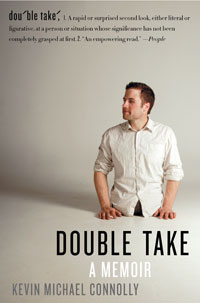Right?
Or, at least, we’re constantly told that men hate shopping.
Ben K. pointed us to a new Lee Jeans ad campaign revolving around a fictional “epidemic among the male population” called “shop phobia” (website):
These ads argue that men don’t shop or are even afraid of shopping. They tell us what men are like. Ben begs to differ, but feels the pressure to be the man they insist he is:
As a man in my mid-twenties who actually does enjoy clothes shopping from time to time, I am, nevertheless, totally complicit in propelling the stereotype that clothes shopping is for women and not men – a stereotype reinforced out by mass culture and my experiences growing up with two younger sisters and a dad who taught me well the ways to keep myself from “losing my manhood” when going shopping with my mom (bring a book, find the chairs near the dressing rooms).
Ben’s confession illustrates how cultural rules about behavior actually create that behavior, thereby making the behavior seem natural instead of rule-driven. Men hate shopping, we learn, and so it appears they do. (See also our post on the self-fulfilling stereotype.)
On a different note, Ben had a really interesting thought about what is so scary about shopping:
I wonder if it has to do with anything about men being seen as in positions of authority or that their work necessitates certain types of clothes (police officers, construction workers), and, so clothing becomes a matter, in the cultural mind, of pure function related entirely to the public work of men. Thus shopping for extra clothes is irrelevant, even dangerous… perhaps because any indication of leaving that world of authority, and public work is also an indication of loss of “manhood.”
See also: Women Love Shoes.
Lisa Wade, PhD is an Associate Professor at Tulane University. She is the author of American Hookup, a book about college sexual culture; a textbook about gender; and a forthcoming introductory text: Terrible Magnificent Sociology. You can follow her on Twitter and Instagram.









